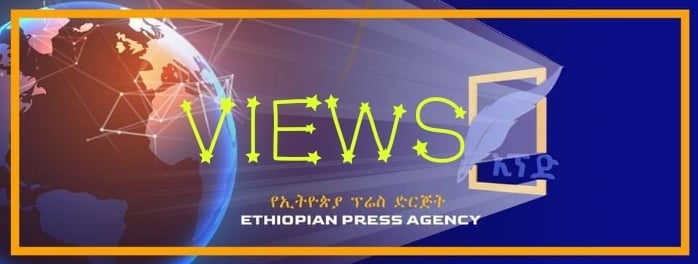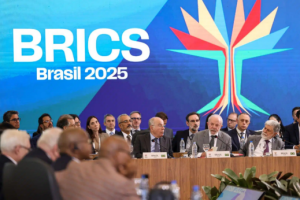
This year the world is celebrating the 76th anniversary of victory in the bloodiest and most cruel war of the XX century – World War II. In Russia it is usually referred to as the Great Patriotic War, a term used to describe the war between the USSR and Nazi Germany and its satellites that raged between June 22, 1941 and May 9, 1945 and ended in the ultimate military, political, economic, and ideological victory of the Soviet Union. This victory had a decisive meaning for the outcome of World War II, which came to an end several months later, in September 1945.
No one has ever doubted that an ultimate and clear understanding has been achieved on the subject of who was the perpetrator in the World War II, and who was the victim, as well as liberator. It would only be fair to emphasize that it was the Soviet Union that absorbed the brunt of the Nazi invasion, becoming the main barrier in the way of spreading Fascist domination upon peoples of the world.
Three fourths of the Wehrmacht were defeated on the German-Soviet Front. The Red Army defeated 507 Nazi and 100 Nazi satellites’ divisions, which was almost 3.5 times more than what the Allied forces have achieved in all fronts of the World War II. The Soviet forces partially liberated Romania, Poland, Bulgaria, Hungary, eastern regions of Yugoslavia, Austria, Germany, Czechoslovakia, Norway, Denmark, northeastern provinces of China and Korea and conquered Berlin.
Many world leaders have underlined the key role the Red Army played in achieving the victory. In his personal message to Joseph Stalin dated February 23, 1945, the British Prime-Minister Sir Winston Churchill maintained that: “Future generations will acknowledge their debt to the Red Army as unreservedly as do we who have lived to witness these proud achievements.” Likewise said US President Franklin Delano Roosevelt, stating that “Russian forces have destroyed more armed power of our enemies than all the other United Nations put together”.
Regrettably, our country paid an enormous human price for the victory and suffered irreparable material losses. The harm done to the Soviet Union was greater than the combined damages of all other European countries. The Soviet death toll in the Second World War is mind-boggling, total casualties reached as many as 27 million people (or 14 per cent of the USSR pre-war population). This is two times higher than that of Germany and far greater than the death toll of France (635,000 people), the US (427,000) and the UK (412,000).
The victory could only be achieved by combined efforts of the anti-Hitler coalition states and the resistance forces in the countries controlled by the fascists. We never forget about the assistance received from our Allies. For example, through its Lend-Lease policy, the US supplied the USSR and other countries with food, oil and military equipment.
Each and every one has contributed to this glorious triumph by fighting their part in the Second World War. And Ethiopia was no exception. We always remember that this country played its own significant role and made a major contribution to our common victory. And it is highly symbolic that Ethiopians commemorate these days the 80th anniversary of liberation from the Italian occupation in May 1941.
One should always remember that the victory in the war prevented the Nazis, who subscribed to theories of racial supremacy and anti-Semitism and were behind the Holocaust, from spreading their racist ideology all over the world. They openly and publicly proclaimed as a goal the elimination of entire ethnic groups – Jews and Roma as well as the majority of Slavs. It is a fact that their plans foresaw physical elimination of up to 100% of Russians, 95% of Poles, 70% of Latvians, 85% of Lithuanians, 50% of French and Czech.
The victory over Nazism remains a lesson that is relevant today, when there are still those who are trying to revive this abhorring ideology and rewrite history. Sadly, that some Western opponents try to belittle our country’s role in World War II. The Red Army’s liberation mission is now cynically placed by them on the same footing with the Nazi occupation and the war crimes of the fascist collaborators, which claimed millions of lives. The monuments to Soviet liberators of Europe are even being desecrated and destroyed. Such actions should be denounced as they go against the resolutions of the Nuremberg trials, which condemned fascist regimes and their accomplices and officially ended World War II.
At the same time we see that manifestations of racism, violent extremism, aggressive nationalism and neo-Nazism are on the rise in the world. Worrying phenomena are being observed in Lithuania, Bulgaria, France, Norway, the US, Canada and Ukraine. It is difficult to explain why it happens now.
Some experts point to the growing world instability and insecurity, as well as the desire of certain countries to destabilize other states and whole regions in order to achieve their geopolitical goals. Hence, we are convinced that systemic work aimed at countering attempts to glorify Nazism, any forms and manifestations of racism, xenophobia, aggressive nationalism and chauvinism must remain at the center of attention of the international community.
Today we all need to learn due lessons from the tragic past. Humankind must always remember the terrible consequences of attempts to establish world domination, the belief in one’s own exceptionality, unscrupulous behavior in achieving one’s dubious goals and the neglect of rules of law and morality. That is self-evident that true security for the whole world can only be inclusive and undivided, based on international law, the coordinating role of the United Nations and collective search for solutions to numerous present-day challenges and threats.
BY EVGENY TEREKHIN, AMBASSADOR OF RUSSIA TO ETHIOPIA
The Ethiopian Herald May 5/2013




